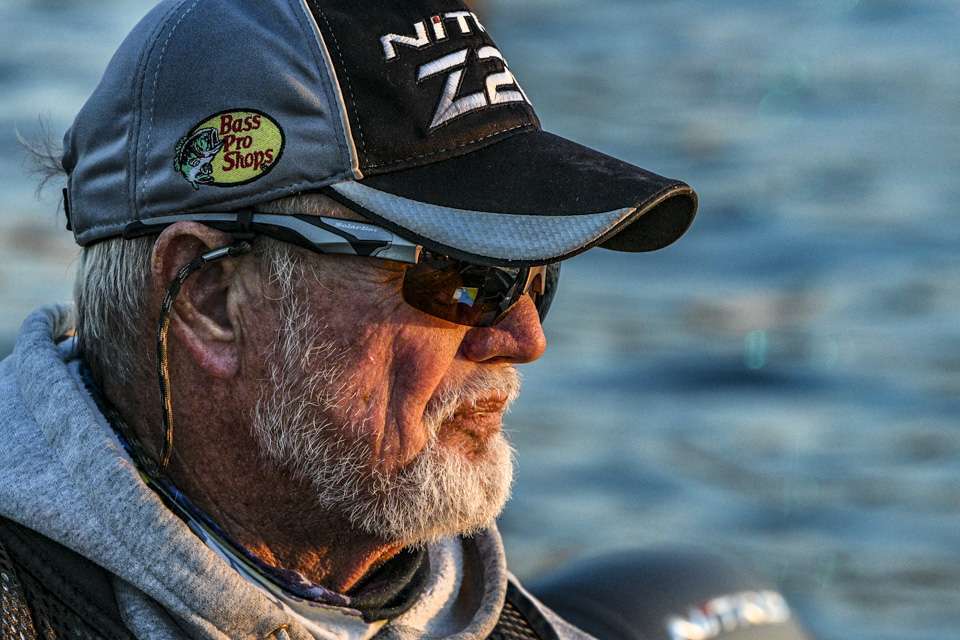
Had it not been for a pawn, Rick Clunn wouldn’t have been able to make the moves to become a king in the bass fishing world.
Clunn was crowned Bassmaster Classic champ the first of four times at the 1976 championship on Lake Guntersville, site of this year’s 50th Academy Sports + Outdoors Bassmaster Classic presented by Huk. It remains vivid in his mind and high in importance.
“That one turned everything around,” Clunn said. “That was the third Classic I fished. The first two I didn’t do well in. I was pretty much going broke — wasn’t going, I was already there.”
Last year after winning his second St. Johns River Elite in four years, Clunn wrote “The realities of tournament fishing.” He divulged his early struggles in the fishing world, which included losing his home and renting a small place on Lake Conroe where his guide business was foundering.
“I’ll tell you how broke I was. We had to pay our own way to the town we met in, New Orleans, before flying to the secret lake,” he said. “I didn’t have the money to get there.”
Clunn even contacted B.A.S.S. and asked to get an advance on potential year-end money awarded, but he was denied. He had one prized possession, a Browning .270 rifle purchased a few years earlier.
“I had a deer rifle that I was still hanging on to, and I hocked it at a pawn shop and I got enough money to get to New Orleans … from there I won that event,” he said, turning the $400 or so into the first-place prize of $25,000. “It was a high quality rifle. That’s why I hung onto it; it was such a pretty gun. I bought it a few years earlier before I quit my job at Exxon and went broke.”
If not for that trip to the pawn shop, Clunn, who owns numerous Classic records, might not have fished competitively again nor built his illustrious career.
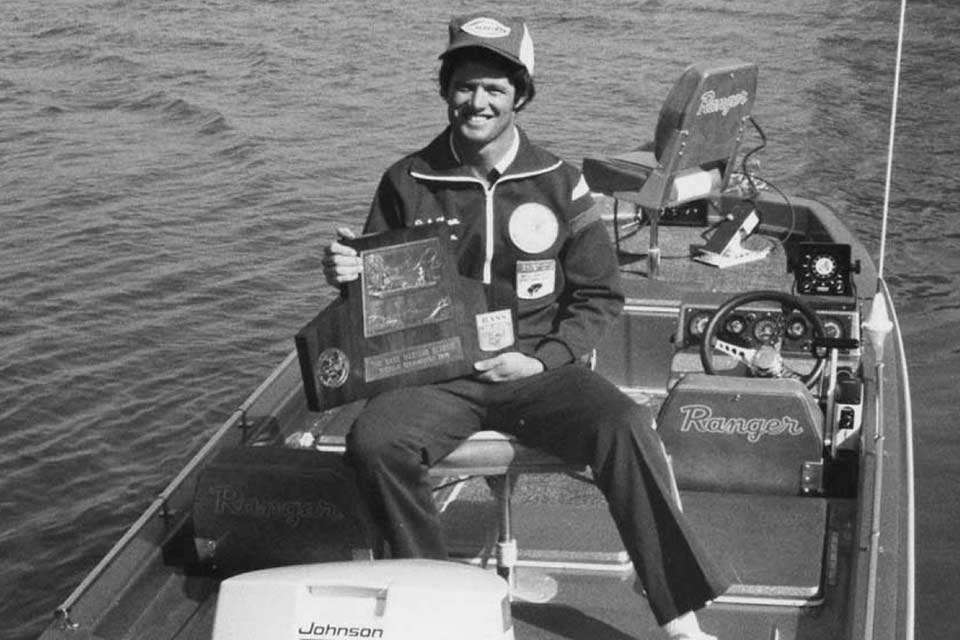
Studying his next move
In his first Classic, Clunn finished 16th on Lake Wheeler in 1974 then followed that up with an eighth on Currituck Sound, never earning a penny in the days of winner take all.
When, where and why fish bite wasn’t well-known, so Clunn decided to study all he could about previous fall events. Many counted on luck, hoping to pull on a magical spot and have them jump in the boat, he said.
“I realized I had to come up with a more scientific reason to win,” Clunn said. “So I simply went back and starting looking at all the other Classics.
“I looked at how Bobby Murray won his on Lake Mead. He was in the back of canyons burning a spinnerbait. The next year, Don Butler won on Percy Priest, all the way across the country but the same time frame. He won throwing a little spinnerbait in the back of a creek behind a marina.”
In 1973, Rayo Breckinridge didn’t use a spinnerbait for his win on Clarks Hill Reservoir, but Clunn noted he was in the very back of the creek, as was Tommy Martin in the 1974 Classic on Lake Wheeler.
“All the sudden, this pattern kept popping out,” Clunn said. “‘Hey, you better just look in the backs of the creek, on a spinnerbait or a little crankbait.’ That was my first real epiphany about seasonal patterns. This pattern is repeating itself year after year, so that’s what I’m going to do, and that’s what I did.”
At Guntersville, Clunn checked on the biggest creeks, explaining they usually are the most fertile and have more baitfish, which means bigger bass should also be in the area. He settled on Browns Creek, throwing a white-skirted (Fleck Weed-Wader) spinnerbait with double Indiana blades and a small, balsa “Honey Bee” crankbait.
“Back then, the Guntersville riprap wasn’t as famous as it is now,” he said, “but I caught all my squarebill fish (22 of 27 total) off the riprap in Brown’s Creek. My biggest fish came on the spinnerbait off isolated milfoil beds.
“That pattern became the key. It was really my realization, and it set the tone — now I understood how to eliminate the luck factor by understanding the seasonal patterns.”
Day 1 didn’t go as planned as he lost some fish and came in three shy of the 10-fish limit. Day 2 was different. Much different. Powered by an early flurry, Clunn caught a monster bag of 33 pounds, 5 ounces, more than half his three-day total weight.
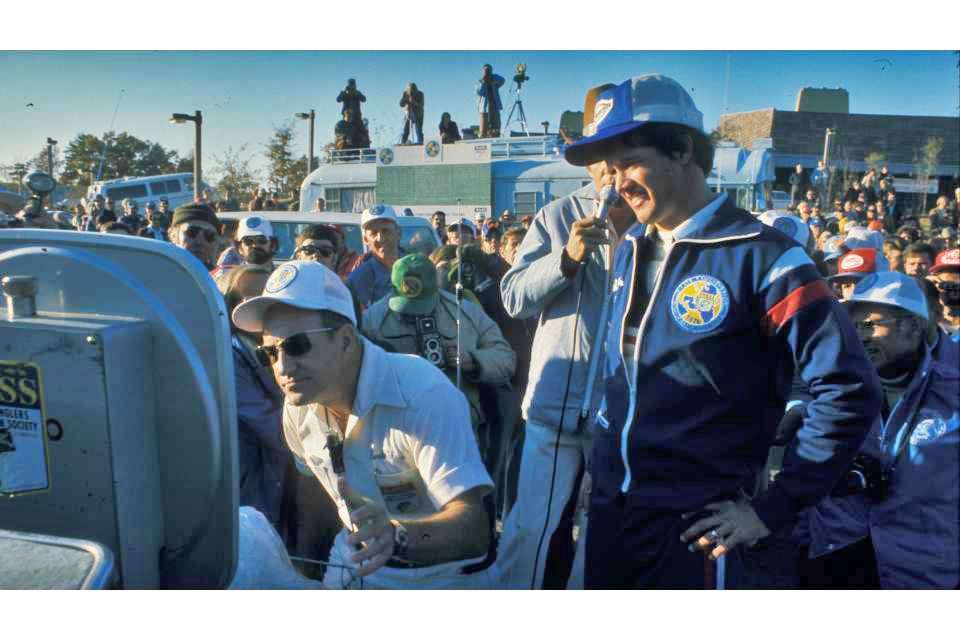
Right place in time
Clunn said he was fortunate to win the 1976 Classic as well as the following year at Lake Toho, where he became the first back-to-back winner and two-time champion. Neither title would have come with current B.A.S.S. safety precautions.
“In today’s rules I would not have won either of those events,” he said. “Back then, we had no weather rules. Nowadays, we do — if it’s storming, lightning or if there’s heavy fog.”
On that fateful Day 2, Clunn said there was a huge black storm cloud north of takeoff with lightning popping out of it. Ray Scott sent the anglers off despite the threatening skies, and Clunn ran directly to his isolated patch of grass and quickly made hay. He landed four bass for around 25 pounds before the storm hit, and he had to move farther back in the creek to take cover.
“I would have never saw those fish. We would have never left the dock,” Clunn said. “The next year, first day of the tournament when I had my big bag, you couldn’t even see your partner in the back of the boat due to fog. And they let us go. Nowadays, we couldn’t go till that fog lifted. I caught my big fish on the first or second cast that morning.
“It’s really weird how times have changed and would have affected the outcome of past events.”
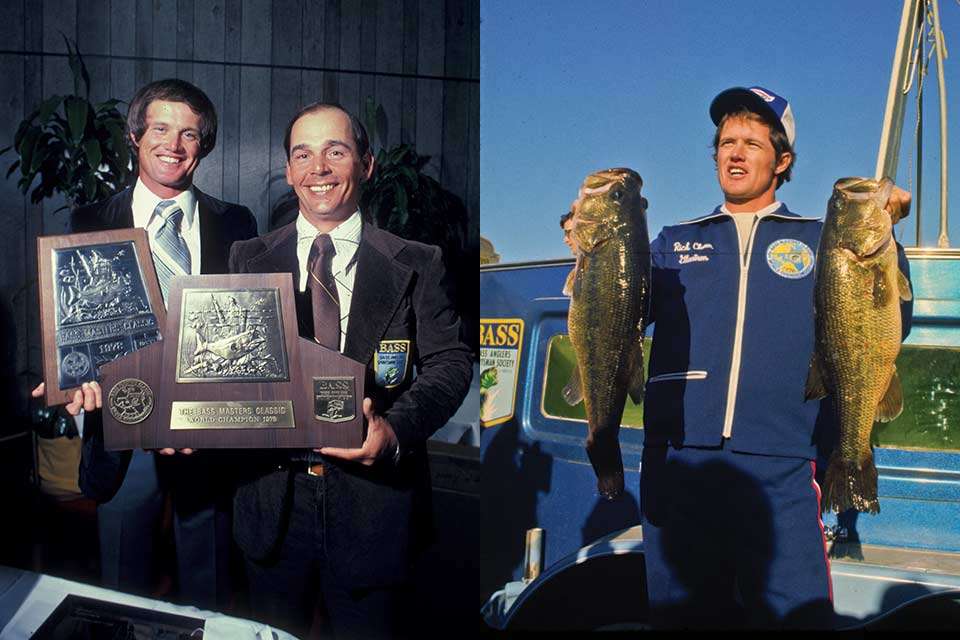
Making ‘em mad
In those early events, Scott communicated with anglers on a CB radio system, providing catch updates and total weights. When Clunn’s Day 2 flurry was reported, it unsettled some other competitors, and one was steaming.
On Day 1 at Guntersville, Clunn had caught his best fish, a 4-pounder, late in the day, clueing him to start on that patch of milfoil.
“So the second morning, I went straight to it, and the storm was coming,” he said. “It’s not as big around as a basketball court. I started on it and my third cast, I caught that 7-13. I was burning those Indiana blades, and they were just leaving a washtub hole in the water when they hit it. I got him in the boat, and I went 20 feet more around it, then I caught a 6-5, then I caught a 6-4, then a 4-something.”
Guntersville is well-known for flurries. In 2014 on Big G, Paul Mueller needed only 8 minutes to catch around 20 pounds of his modern Classic record bag of 32-3. Davy Hite, 1999 Classic champ who now serves as analyst for Bassmaster TV, said things can happen fast on Guntersville. He said the famed fishery can yield 25-pound stringers in 10 casts, adding he predicts records will be set in the golden anniversary event.
“Back then, Ray had those walkie-talkies,” Clunn said, recalling him exclaiming, “Wow! Wow!” when he announced the results of his flurry.
“One of the humorous things, because it happened so fast — 25 pounds in the first 20 minutes of the morning — everybody at the time didn’t believe it at first,” Clunn said. “Bo Dowden, who had led it the first day, told me later, ‘I was so mad. I hadn’t even made my first cast and I heard that and I about threw my rod in the water.’”
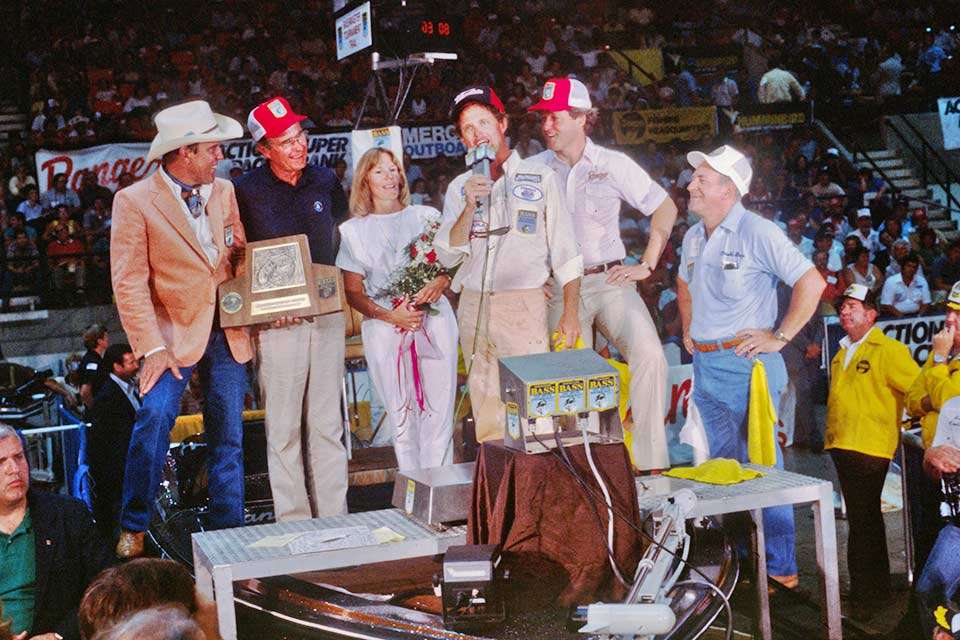
Check and mate, and more checks
After only 10 pounds on Day 1, Clunn took the lead heading into the final day, when he caught around 16 pounds for his 59-15 total that topped Dowden by 3-11. That win set him on his way in Classic lore. Clunn has posted top 10 finishes in half of his record 32 Classic appearances, including four victories. He won by record margin in the 1984 Classic on the Arkansas River out of Pine Bluff, Ark., with two future presidents alongside at the weigh-in, and he won his record fourth in 1990 on the James River out of Richmond, Va.
None might have happened if not for the first.
“It just changed everything overnight for my fishing career,” he said. “I emphasize this, too. What most anglers get into bass fishing competitively for is the dream. Bobby Murray’s win was what finally gave me the courage to follow my dream, when I saw him win $10,000 at Lake Mead. That finally gave me the courage to quit my job at Exxon. That was it.
“That’s still the biggest thing in this sport — to dream about being in the Bassmaster Classic, and the ultimate dream is to win it.”
For years, Clunn has debated the greatest feat of a bass pro — winning a Classic or claiming the Angler of the Year point title — with the likes of Roland Martin, who holds the record with nine AOYs. Clunn asserts both have great merit, the sprint over three days vs. the test of time over a full season.
“One thing you can’t argue is that, financially, the Classic still means much more in your career,” said Clunn, who along with sponsors calling saw his guide business blossom immediately after his first title. “I was trying to start a guide service on Lake Conroe. Nobody knew Rick Clunn. I wouldn’t get one client a month.
“After that, almost immediately, oil companies in Houston started calling, saying, ‘How many days you have left open this year?’ ‘Well, I have a 135 left open.’ And they go, ‘We’ll take them all, we’ll pay you in advance, even if the people don’t show up.’ That’s how big a change it was. I went overnight from getting one call a month guiding to being booked for every day I wanted to guide.”
The bass fishing world, which holds Clunn among its greatest competitors and ambassadors, might have been different if it wasn’t for him pawning that Browning rifle.
“Everybody writes about losing your house and moving into a $100 rent house on the lake where I was trying to guide,” he said. “Very few people know I almost couldn’t get to New Orleans to make the flight.”
And that is the rest of the story.

